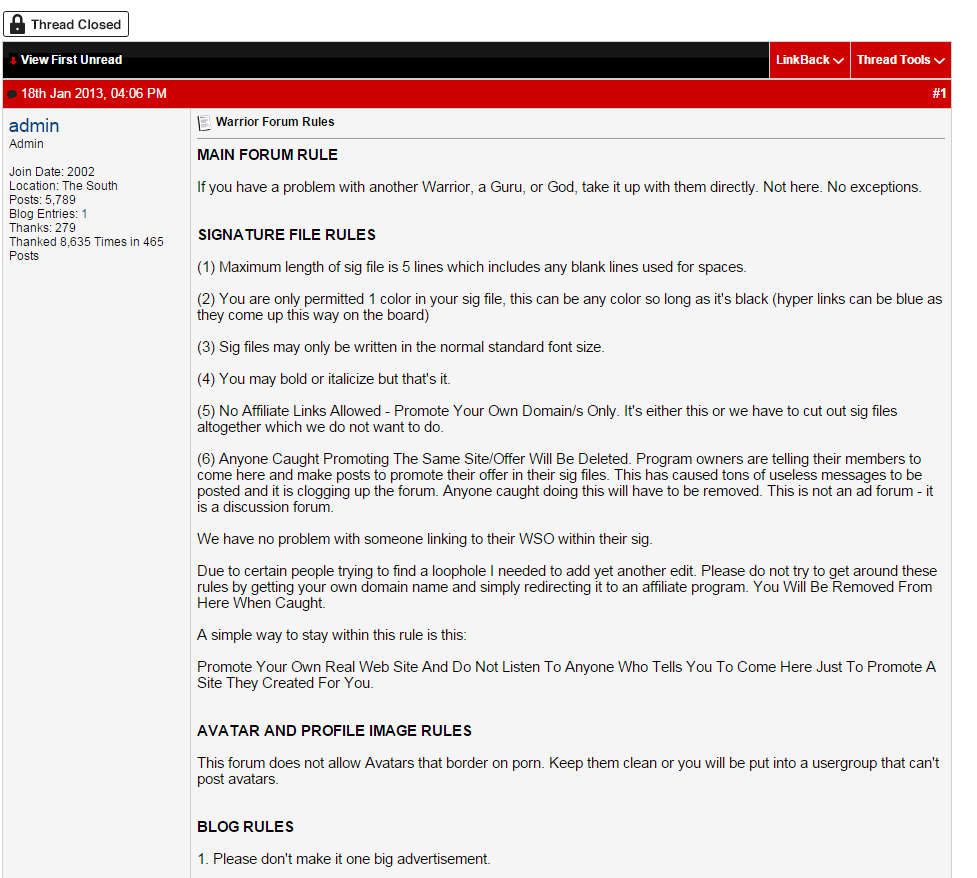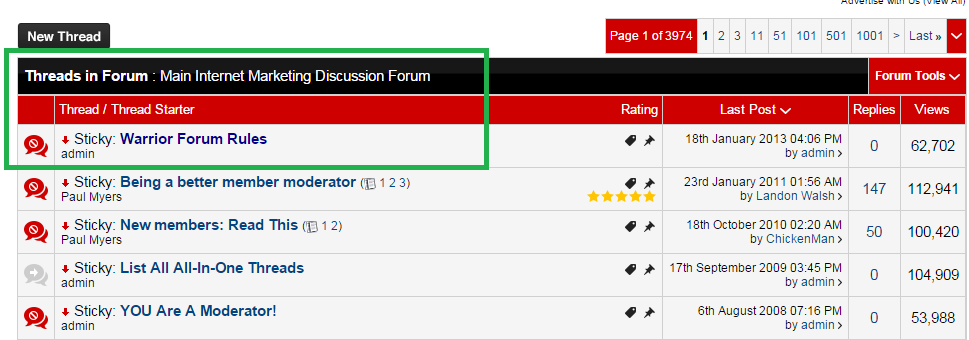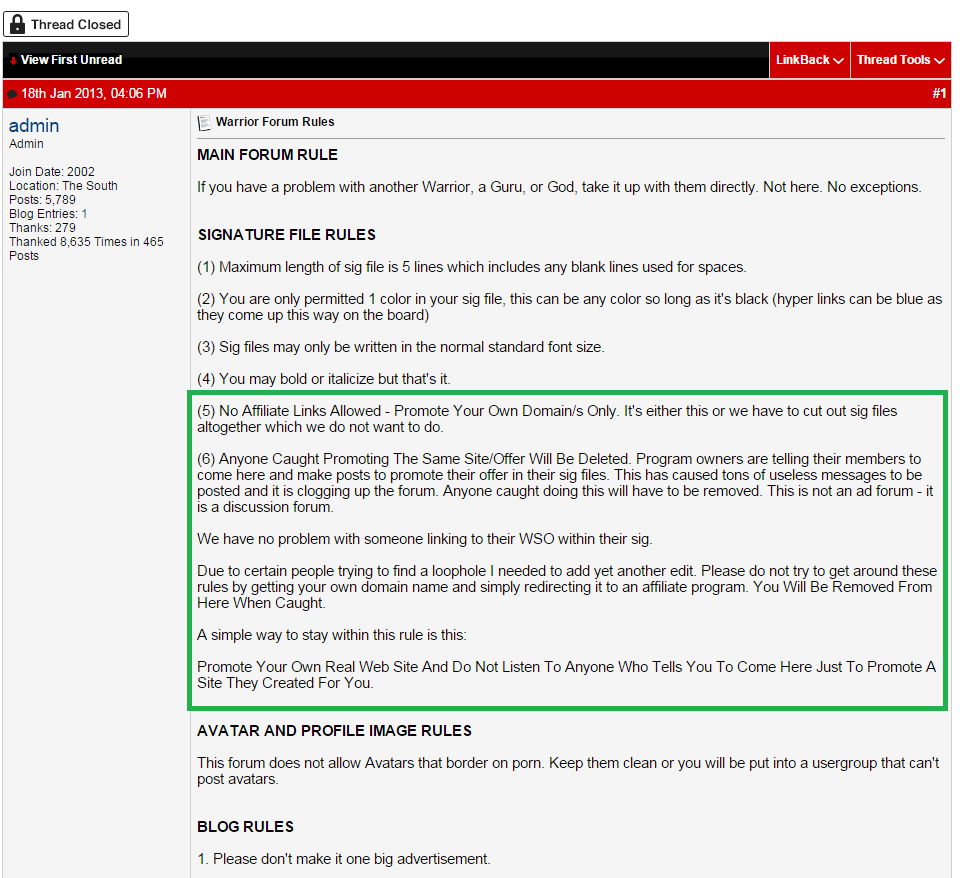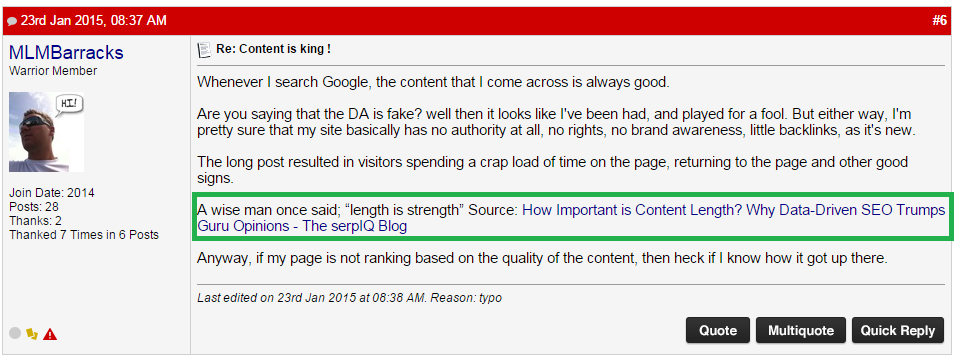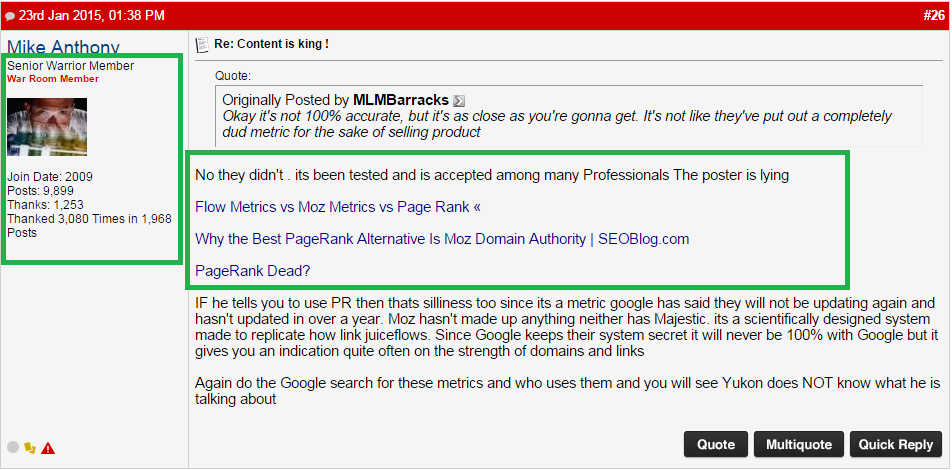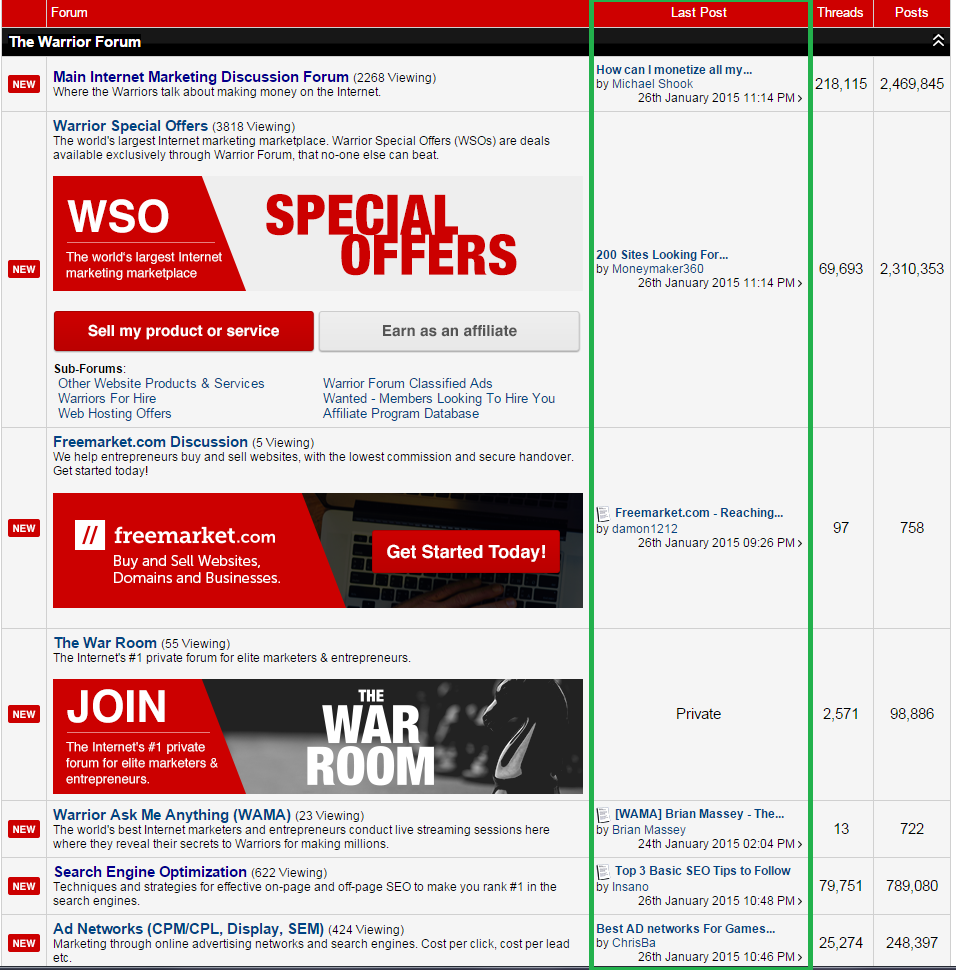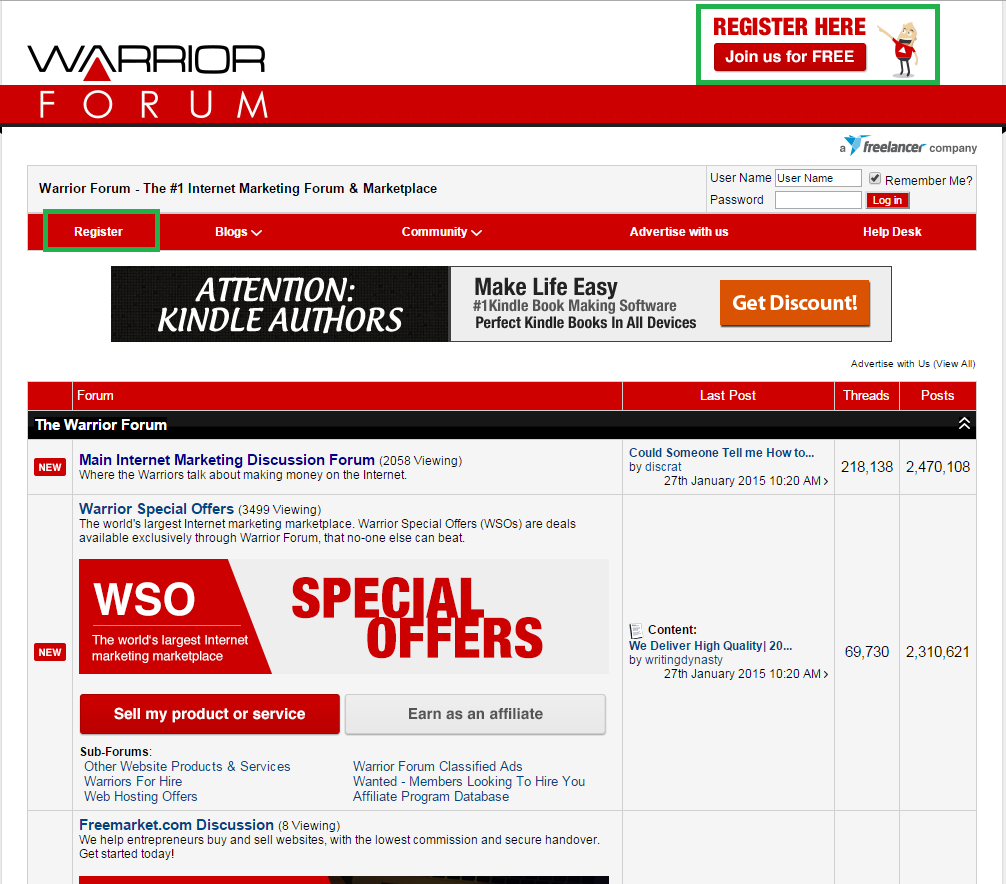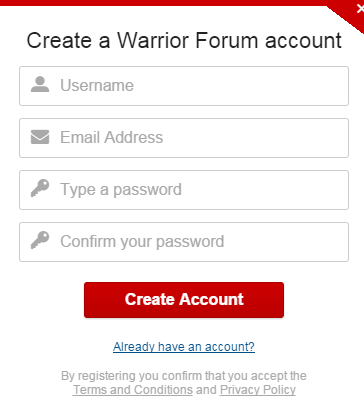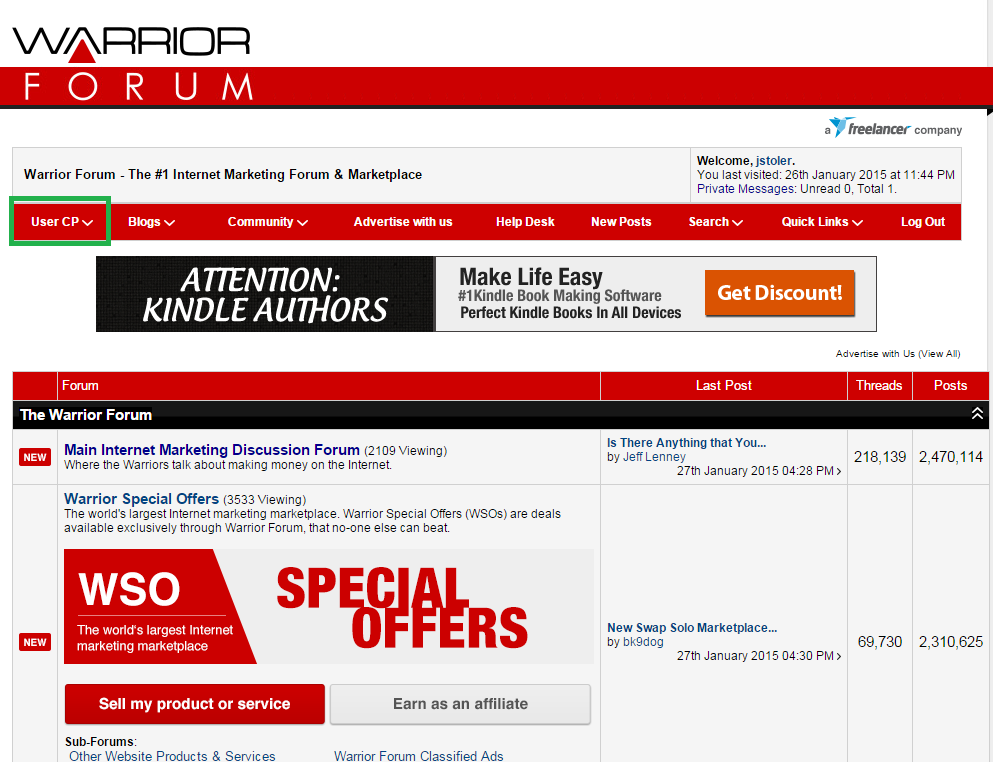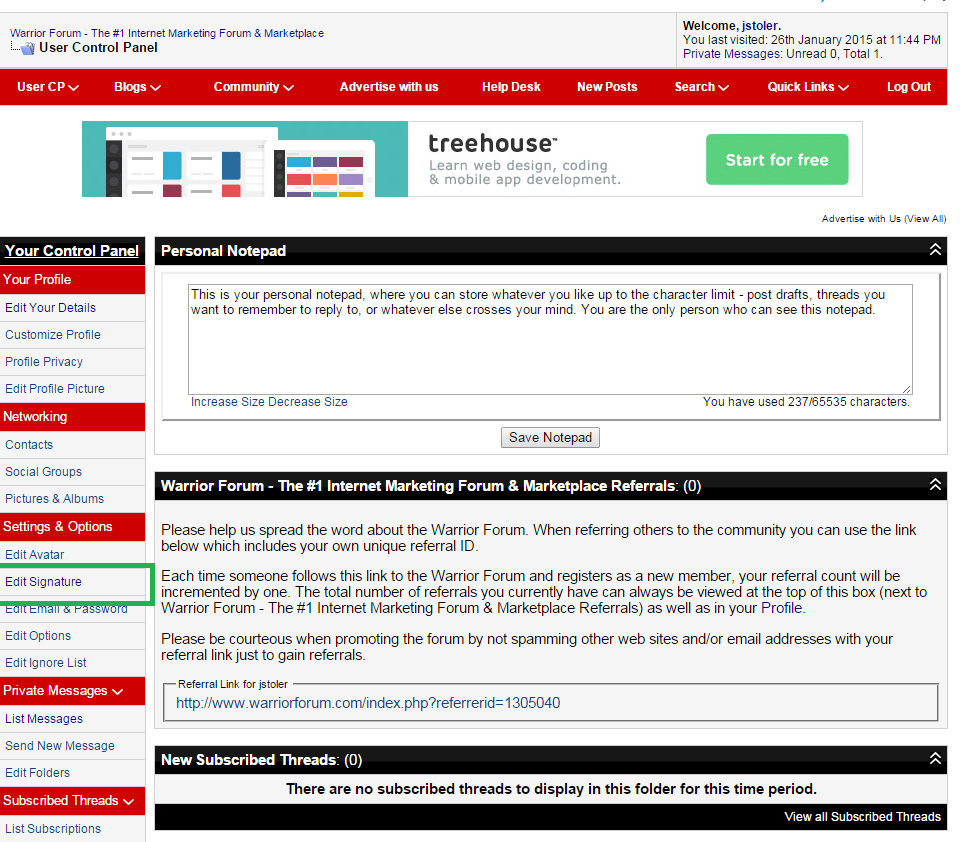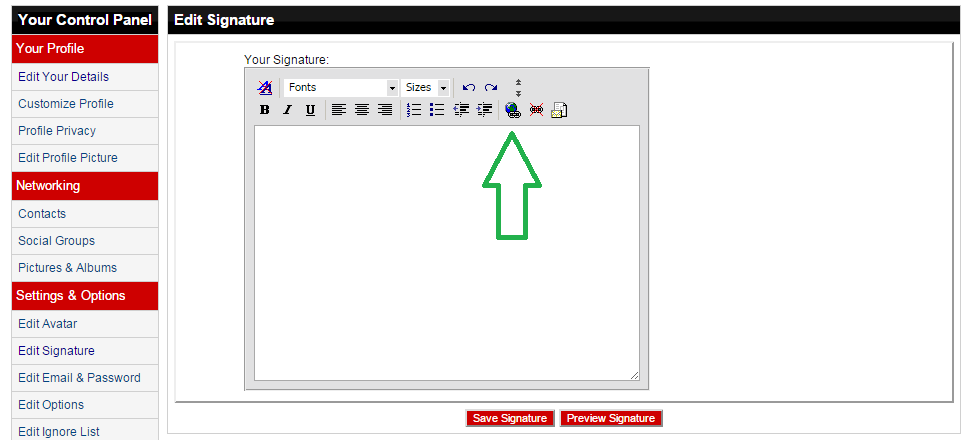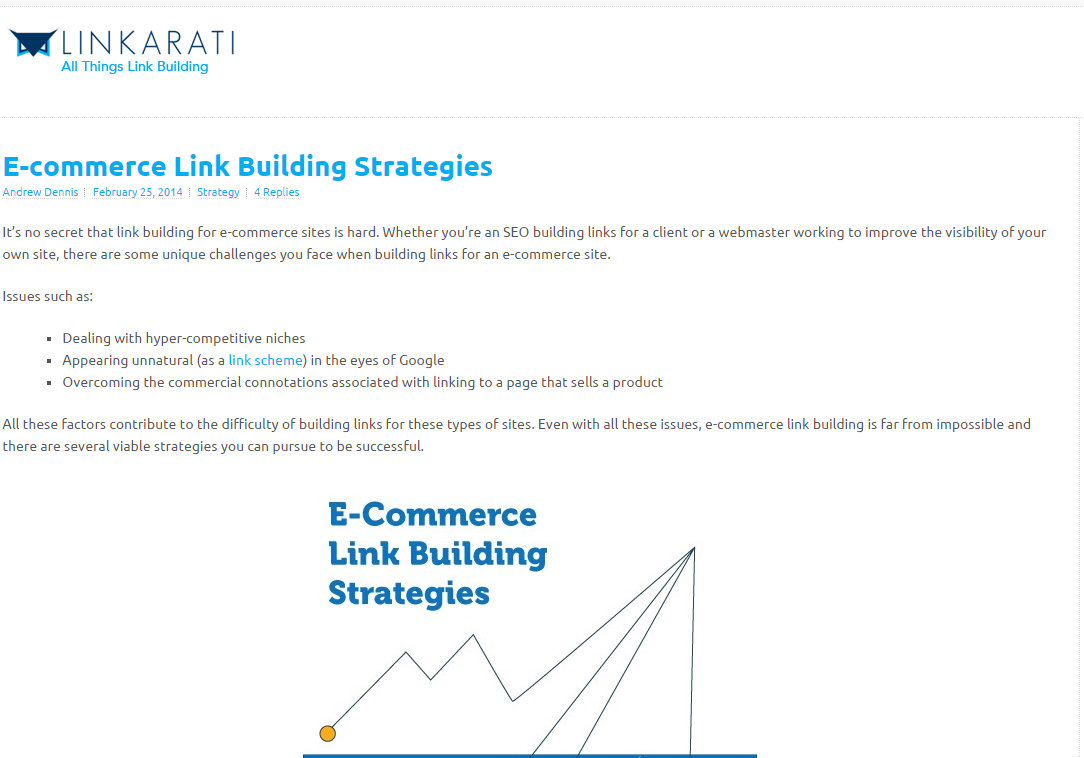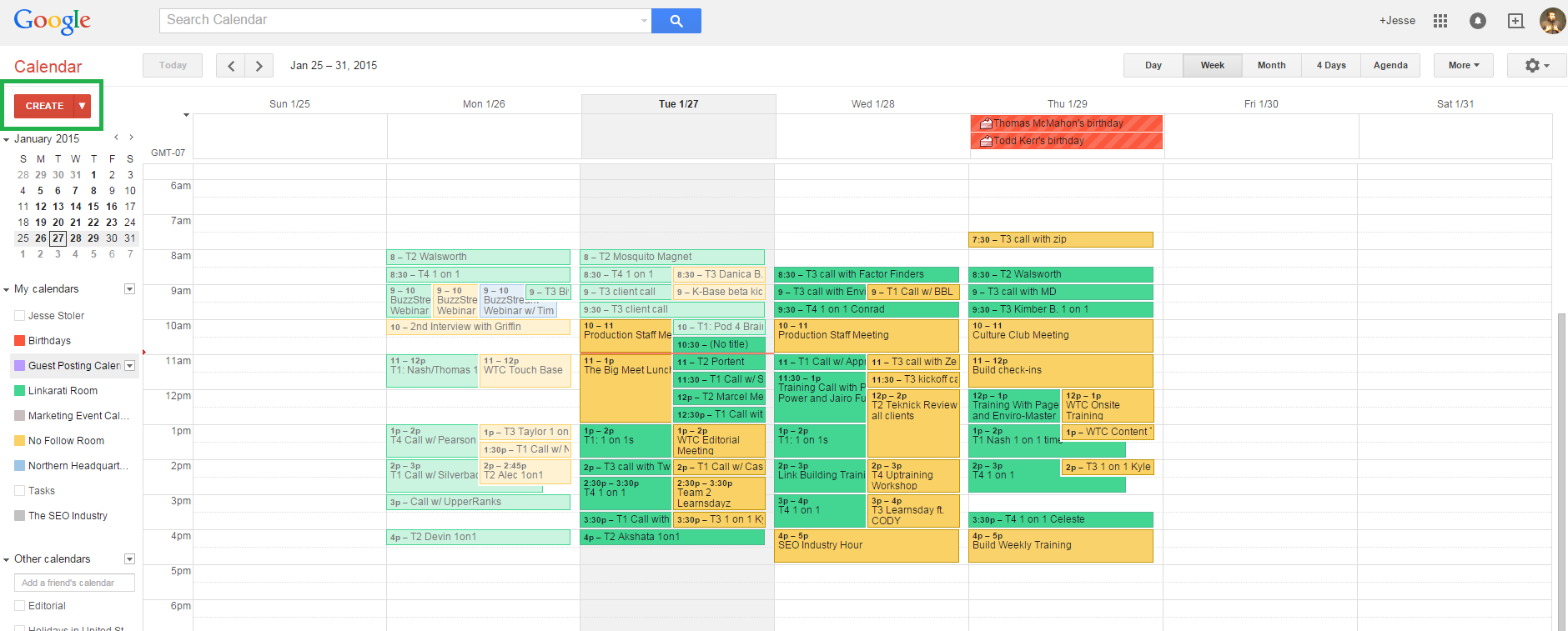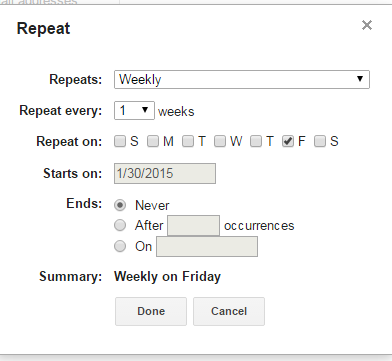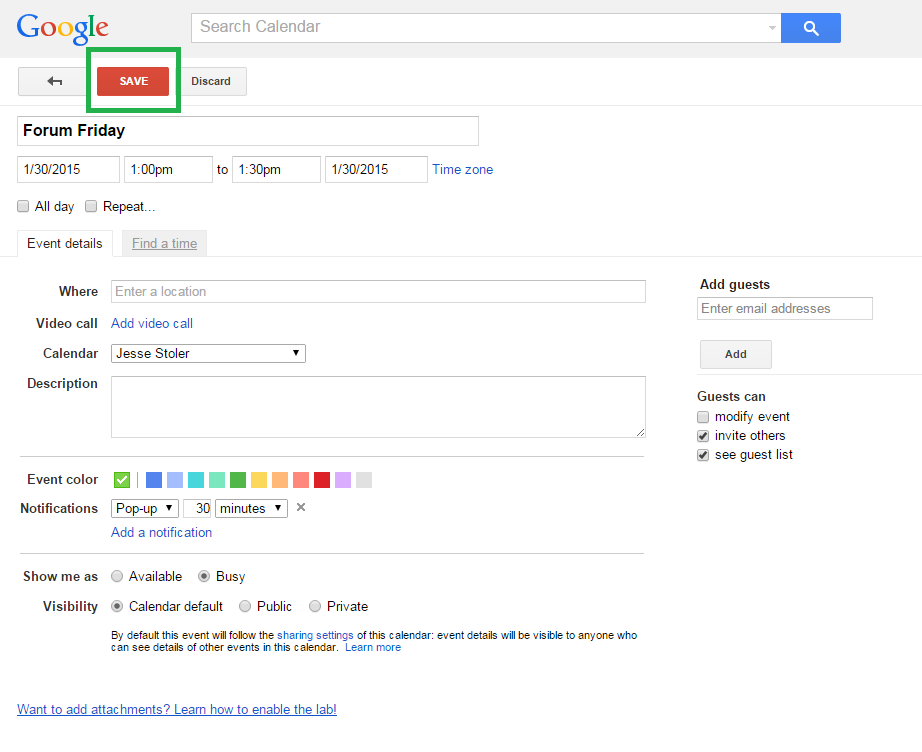Hello, and welcome to another installment of our weekly series, Tutorial Tuesday! This week, I will be talking about building natural forum links.
Natural. Natural. Yes, NATURAL.
I can’t stress that word enough. In the days before Penguin ruined the party made the Internet a better place, it wasn’t uncommon for “link builders” to spam the bejeezus out of forums.
Let’s say there’s a forum devoted to all things Gilmore Girls. I don’t know why that’s my example. It’s not like I’m a, um, member of one or anything.
Okay, you caught me. The classic show aired its final episode in 2007, years before Penguin was introduced to the SEO world. This was a time when forum spam ran wild. If you were in a Gilmore Girls forum, a thread devoted to ranking Rory’s boyfriends might be interrupted by a post sponsoring secondhand watches. It was annoying. And by the way, Dean>>>Jess>>>>>>>>>>>>>>>>>>>>>>>>>>>>>>>>>>>>>>>>>>>>>don’t even talk to me about Logan.
It wasn’t interruption for interruptions sake. The people that built this link weren’t really trying to get Gilmore Girls fans to buy their product either. The link was an attempt at gaming Google’s link based algorithm.
These links still happen. I’m active in a couple of forums, and I still see these unnatural forum links from time to time. It’s MUCH harder to get away with this now. Not only are other forum members going to express their disapproval, but the spam team at Google won’t be too happy either. It might expose you to a penalty or the penguin algorithm.
This doesn’t mean there’s no such thing as a natural forum link. Far from it. What natural means in this instance is contributing to the conversation.
Forum links are about engagement. The fact of the matter is that forum links don’t carry a ton of direct SEO value. Indeed, the majority of forum links are actually nofollowed. There’s still debate about the algorithmic power of nofollow links, but this great article by Nicole Kohler explains why nofollow links shouldn’t necessarily be neglected.
Because of this, I wouldn’t recommend spending a large amount of time building forum links. But there’s enough value to spend at least a little time.
First off, a forum link has potential to send decent, qualified referral traffic your way. But more importantly, building a forum link still leads to exposure to a niche audience. Forum link building will also compel you to spend time interacting and engaging with users interested in your niche. It’s relationship building. And the power of relationship building is that a good relationship can build your next link.
So let’s build a forum link, shall we?
Step One: Finding Forums
Finding a forum sounds easy, doesn’t it? It is and it isn’t. The hard part isn’t finding forums. The hard part is finding the right forums.
For the purpose of this tutorial, I’m going to pretend that I’m building links for Linkarati.
The Internet is hardly lacking for forums about, well, the Internet. The Internet is fairly narcissistic that way. If you were to subscribe to every single forum devoted to the Internet, you’d drive yourself berserk.
Don’t worry: you don’t have to keep tabs on every single forum. It would be a complete waste of time. Forum link building should really be lower on your list of priorities, so I wouldn’t recommend following more than three or four, based on certain criteria.
If you’re in a niche where you’re compelled to winnow down a list of the best forums to follow, here are three key factors to consider:
- Your specific audience/brand message
- The forum’s audience
- The forum’s rules on promotion
- Activity and engagement
For the first point, realize that just because two forums are devoted to the same niche, it doesn’t mean they’re devoted to the same audience in that niche. Think of our realm of digital marketing. Warrior Forum and Black Hat World both cater to people looking to make money online, yet their audiences want to do so in different ways. Yes, Warrior Forum has black hat users, but overall it’s more holistic.
Because Linkarati is DEFINITELY more interested in white hat link building, we would be better off following Warrior Forum.
Be mindful of the forum’s rules on promotion and linking as well. Some forum moderators will be none too thrilled if you are consistently promoting/sharing your own content, and their annoyance would be completely justified (more on this later).
Forums will often have a page that explains their policies. Take the aforementioned Warrior Forum for example:
This kind of page can often be found in General Discussion subforums and are stickied.
Let’s look back at the rules laid out by the moderators, particularly rules five and six:
That reads pretty straightforward to me. These folks have no problem with you wanting to link to your own site. This pertains only to your signature though. This doesn’t address linking within the content of a post. This is when you want to look around at other posts - see if other people are using links.
Pick a thread with several replies, scroll through the conversation, and look to see if anyone is sharing content. For example, here’s a thread called, “Content is king!” with 66 replies (as of this writing). Scrolling through, you can find:
This member has only posted 28 times. Is there someone with authority who shares content?
What do you have to say about that Colonel Hans Landa?
Speaking of looking for a thread with lots of replies, this is the most important part of picking the right forum to follow. If you’re going to spend even the modest amount of time scoping for forums for link opportunities and link prospects, it’s best to pick a forum where people actually spend time.
This is pretty easy to detect, and to detect quickly. Simply land on the main page and look at the last/most recent post column (which every forum will have). That column will almost always have a timestamp as well. For example:
As you can see, several posts on January 26, the day of this writing.
It’s not like there has to be a new post every five seconds. But there should be, say, five threads that have a new post in them everyday. That would be a pretty good barometer of active engagement.
This is just one forum. You might want to use more than one, but again, I wouldn’t rustle up more than three or four to regularly keep eyes on. There are only so many hours in the day, and many more worthwhile strategies to pursue.
Step Two: Create a Profile
Now that you’ve picked your forums, it’s time to become a member.
Some forums will allow people to post as a guest. It’s rare, but I’ve seen it. Don’t be one of those people. To do so would completely be opposed to what you are trying to accomplish here. You’re not only building links, you’re building relationships, which in turn builds links. No one builds a relationship with a poster who doesn’t even bother to use a handle.
Plus, the whole becoming a member process will typically take less time than it did to write this sentence.
So let’s use Warrior Forum as an example again. Bear in mind that the process is going to vary slightly from forum to forum, but I feel Warrior Forum’s process is pretty average.
Find the link that allows you register, which will ordinarily be above-the-fold and easy to spot. Here’s exhibit A:
Clicking on either of those two will pop up a registration menu:
When picking a username, I’d recommend using your real name, or your real name plus a number at the end. If you’re here to build relationships, better to not hide who you are. As for your password, that’s entirely up to you.
Once you’re registered, find the user control panel. Again, the placement will vary from site to site, but it will ordinarily reside in the same neighborhood as the registration link.
Now you can put the link in your signature.
Click on the “insert hyperlink” icon on the new screen. It’s a fairly universal icon.
Once you insert the link back to your site, congratulations you have a link on the forum.
Step Three: Engage
Your signature link may drive some traffic, and it’s good authority building. The more and more you contribute to the forum--more on that in a minute--the more people are going to associate the brand in your signature as a thought leader.
However, this isn’t the most powerful link you can build on a forum. The links that are going to be more powerful for you are contextual links in posts.
To build this kind of link, this requires frequent engagement. That means not just watching other people talk, but actually getting your hands dirty. That also means that a majority of your posts in the forum should not include a link back to your site. Not only are other forum members going to start rolling their digital eyes if you link to your site in every post, the moderators will think you’re a spammer. That’s because you are.
Remember, a big component of forum link building is relationship building. No one wants to engage with someone who is clearly there just to blatantly self-promote. So offer advice when applicable. Answer questions you know the answer to. If someone wants to know about a product that you’ve used, give them your feedback.
Just be a normal forum member.
The more you contribute, the less people will mind when you link back to your site in a post, as long as the link is natural. Don’t insert a link if it doesn’t either a) help to clarify a point you’re making or b) source your content.
So let’s say you saw a thread named:
On Linkarati, we have this article written by my colleague Andrew Dennis.
Within the article, he talks about competitor analysis, which is really a great strategy in any niche. So what you could do is reference a point he makes in the article like this:
This would be a powerful link. It’s not just a signature that just anyone is allowed to use. It’s a link that actually helps a forum member in need of advice. It’s brand building and community engagement all rolled into one succinct post. It’s hard to beat.
Step Four: Finding Time
As I’ve said before, forum link building should be lower on your list of priorities. Other links are going to be far more powerful, at least in terms of link equity and traffic. The links you build in forums are more about community engagement and establishing authority.
So forum link building should only take up a small percentage of your time. What I would suggest is carving out a special designated time that you devote to scouring forums. If you regularly find that you have a lighter workload on Fridays, have a Forum Friday. Schedule time from, say, 1 to 1:30, in which you look for discussions you can contribute to. If you don’t have anything valuable to contribute, don’t force it. If this is the case, observing the conversations will possibly spawn some ideas for new content.
Add this time to your Google calendar, so that you will get your weekly reminder. Go to your calendar page and click on the create button in the top left of the screen.
Now fill out the information.
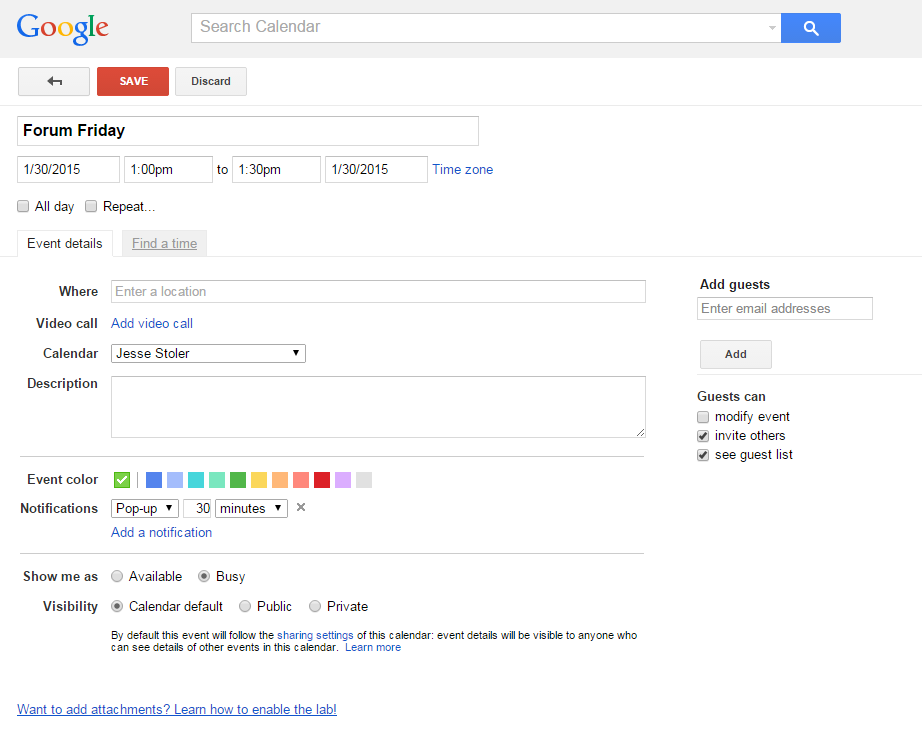 To make it weekly, check the repeat box underneath the time slots.
To make it weekly, check the repeat box underneath the time slots.
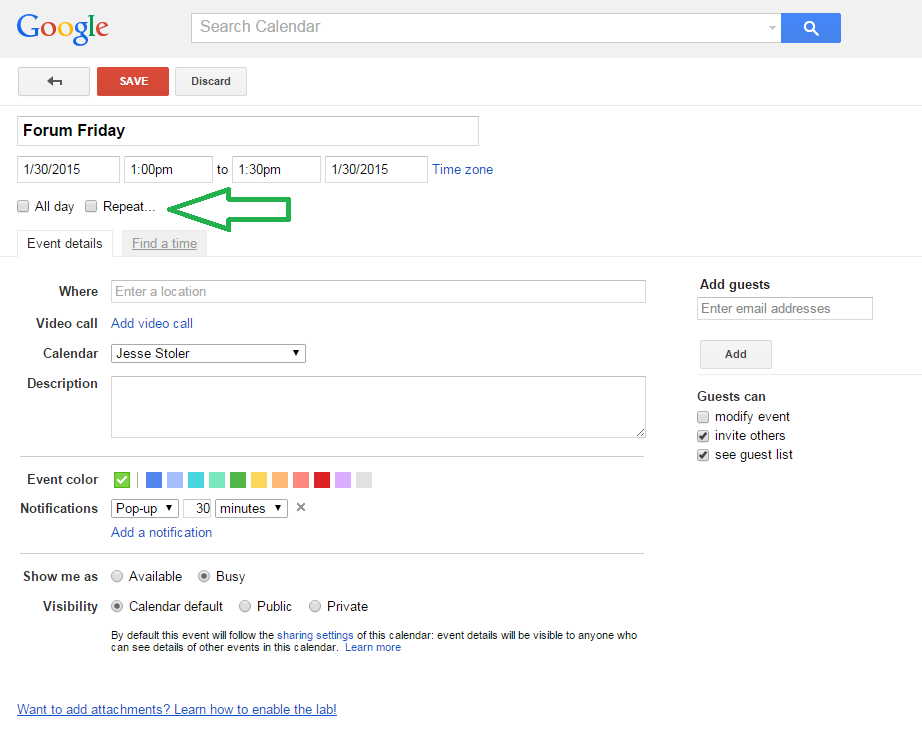 The following screen will pop up.
The following screen will pop up.
It automatically selects weekly in the top dropdown. Fill this out however you please, and click done. Once you’ve clicked done here, save your event.
Conclusion
Again, forum link building shouldn’t be high atop your list of link building priorities. But it can be quick, easy, and the consequences can be wonderful.
If done properly, not only are you driving traffic to your site, but you’re engaging with people in your niche who may help you build links on other sites in the future, as long as you help them in return.
Spending time in forums can also spur content ideas for you. If you notice a lot of people are asking a similar question, it’s something you can address on your blog or website.
There’s really no reason not to be engaging in your niche’s online community.



